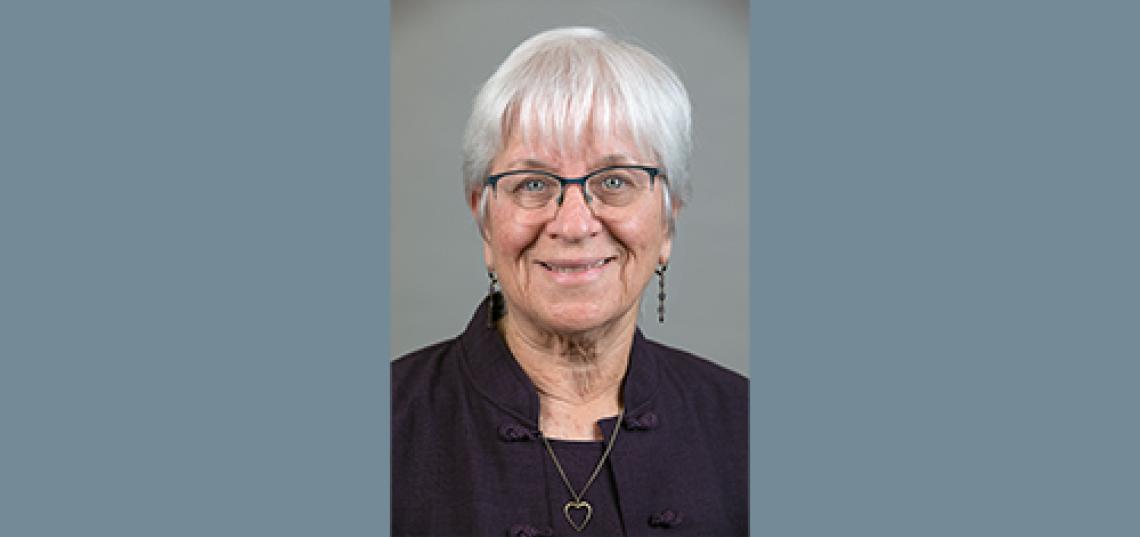
The experiences, concerns, and issues faced by scholars and teachers from other countries who live and work in academic institutions in the U.S. are often left out of discussions focused on diversity, equity, and inclusion, creating a “blind spot” that negatively impacts this group of immigrants, as well as their institutions, according to a new study by Associate Dean for Programs and Distinguished Professor of Journalism and Media Studies Dafna Lemish.
The most important finding of the study, “Academic Immigrants in DEI Discussions: Another Blind Spot,” published in “Change: The Magazine of Higher Learning,” (open access), Lemish said, “is the way academic immigrants understand the unique assets they bring to their institutions by offering an outsider perspective to both research and teaching, thus expanding both scholarship as well as the educational mission. At the same time, they describe feeling they are living double lives, not fully integrated, and often double ‘othered’ – both as immigrants, and many also, for being a member of a minority ethnic/religious group in their host country.”
Academic immigrants understand the unique assets they bring to their institutions by offering an outsider perspective to both research and teaching, thus expanding both scholarship as well as the educational mission.
Lemish further argues in the study that the blind spot her research identified indicates American institutions of higher education “need to pay attention to the inclusion of this segment of our community by offering recognition of their unique cultures, providing community-building opportunities, and being aware and compassionate toward their challenges in light of human and/or nature-made crises in their home countries that impact their everyday existence.”
Her findings also suggest that American institutions of higher education should support and leverage the unique contributions academic immigrants make to their disciplines and institutions, Lemish said.
“Academic immigrants, scholars, and teachers who hold key positions in our academic institutions require significantly more appreciation for their contributions to all aspects of academic life, as well as much more recognition of and support for the unique challenges that they face,” Lemish wrote in the paper.
Lemish, who is an academic immigrant, having moved to the U.S. from Israel as a senior scholar, said she initially began to speak with fellow academic immigrants as a form of “self therapy,” to help her make sense of her academic position in her host country. “I was curious whether other colleagues were dealing with similar issues,” she said.
Her formal research began once she decided to interview people more systematically. Then, she said her “interest in going deeper and broader just grew, and it became a study of 81 interviewees,” including nearly a dozen from the Rutgers School of Communication and Information.
Academic immigrants describe feeling they are living double lives, not fully integrated, and often double ‘othered’ – both as immigrants, and many also, for being a member of a minority ethnic/religious group in their host country.
The positive reaction her article has received has solidified Lemish’s realization that her experiences as an academic immigrant were not hers alone. “I was thrilled to read the many messages I received from participants in the study – as well as other academic immigrants – who sent reactions such as ‘this resonated so much with my own experience’ and ‘it was so reassuring to read that others feel like me.’ They really appreciated participating in the study, saying that it gave them an opportunity to reflect on their professional and personal lives in ways they have not done before,” Lemish said.
Lemish plans to publish additional research on this subject, which she said will focus more specifically on the concept of “home” for academic immigrants and how it impacts the kind of scholarship they engage in.
“I have hundreds of pages of interview transcripts that are so rich with valuable narratives that I hope to be able to help amplify the voices of our colleagues from around the world,” Lemish said.
Learn more about the Journalism and Media Studies Department at the Rutgers School of Communication and Information on the website.
